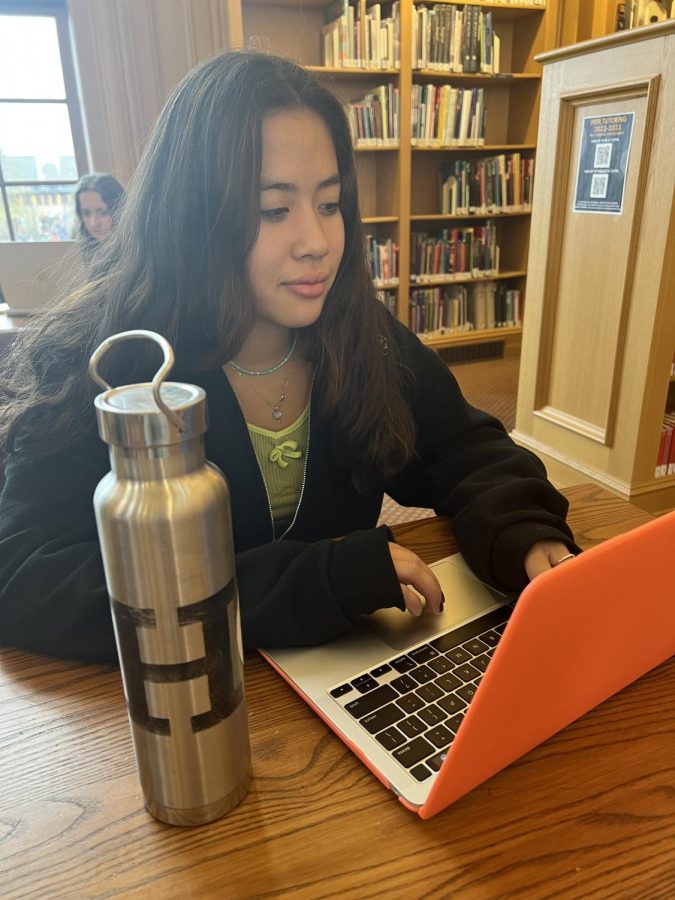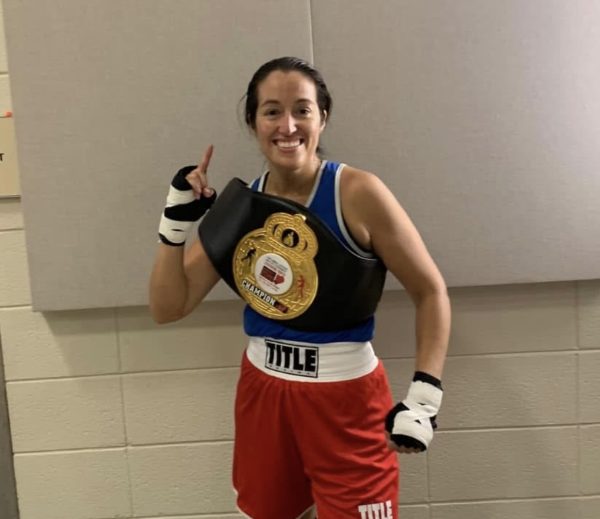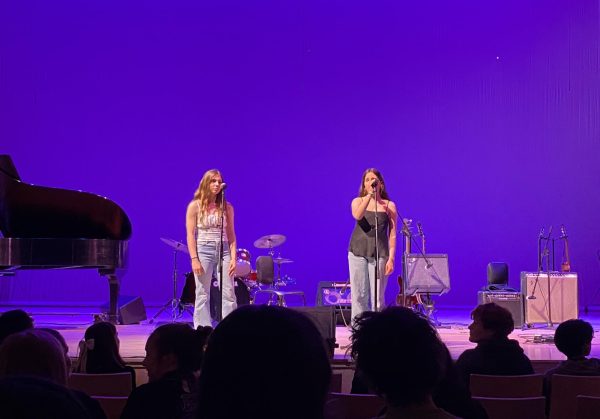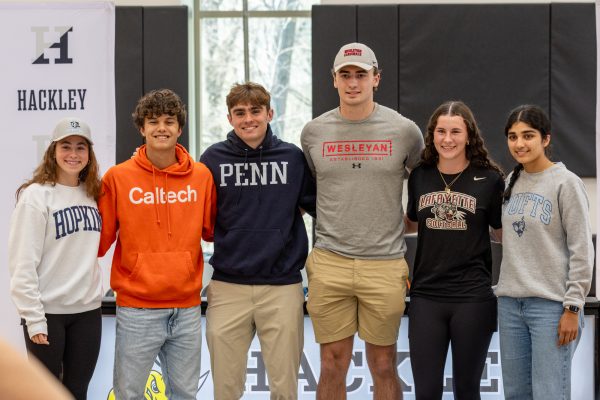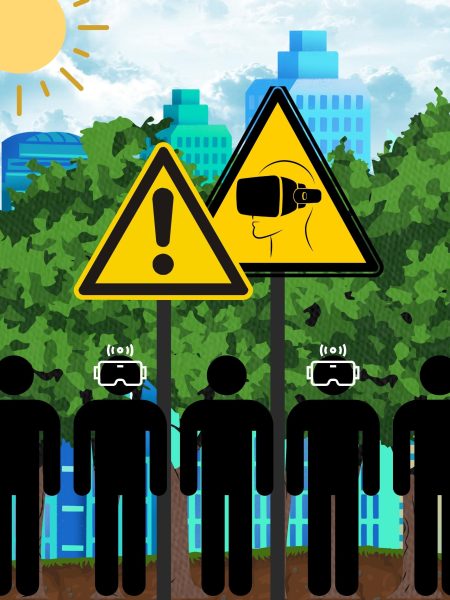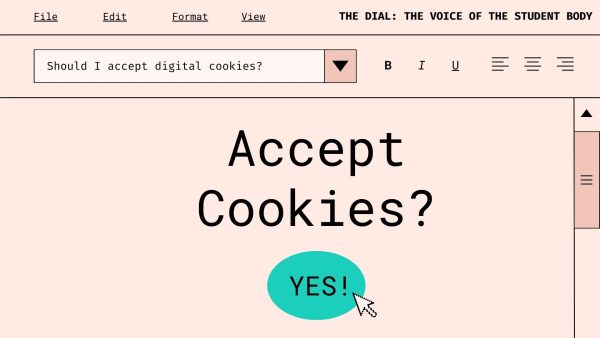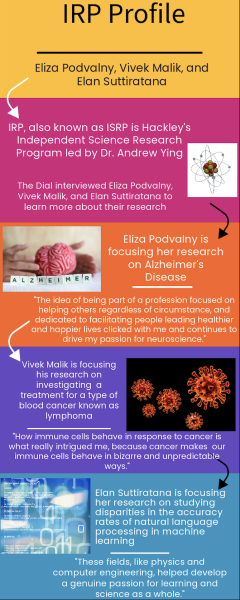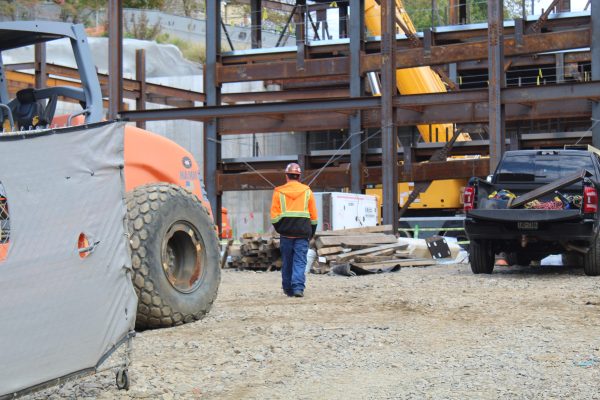HEAL Initiative – Reusable Water Bottles
Credit: Sejal Virk
Sophomore Isabella Barriera works on her English project in the library, her water bottle next to her. Every year, HEAL passes out these water bottles to the freshmen so everyone has access to a reusable water bottle.
Walking around campus, you may have noticed silver water bottles with a black H on them, without realizing they are a work of HEAL. Hackley Earth Action League, or HEAL, is a student-led club that focuses on spreading awareness about climate change and helping students, parents, and staff make more environmentally conscious choices on campus.
Every year, HEAL hands out new water bottles to the freshmen, making sure everyone has access to a reusable water bottle in order to reduce plastic single-use plastic waste on campus. This way, each student can bring a reusable water bottle without having to buy one. HEAL leader and senior Elizabeth Rudge said plastic bottles are also sometimes made of oil and are often not fully recyclable, so this process has helped reduce the amount of plastic waste on campus.
According to HEAL advisor Regina DiStefano, the bottle initiative supports the element of Hackley’s strategic plan related to protecting the environment. To Ms. DiStefano, this initiative is important because it “shows our dedication to environmentalism and encourages students to be mindful of how the choices they make can impact our community and environment.”
HEAL has a few other initiatives this year that they are hoping to work towards. First, they want to bring composting to campus, by either transporting it off-campus to the people who haul our waste or by composting in the Lower School, giving our food waste back to campus grounds. Hackley used to compost before COVID, but this process stopped and has not yet been fully implemented back into the community because of supply chain issues. HEAL has just been in contact with FLIK, the food service used on campus, to start composting soon, and they hope to keep composting permanently.
Second, Elizabeth said that there was a lot of engine idling on campus, especially during the winter. She explained how parents often keep their engines running when waiting in line to pick up their kids. This is harmful to the environment since the cars are running for unnecessarily long periods of time.
“Watching that, turning off your car while you’re waiting in the standstill for ten minutes, if everyone does that, if about thirty cars do that for ten minutes, that’s an incredible amount of waste and CO2 emission [reduced],” Elizabeth said.
She also encourages students and faculty to be aware of their waste, and their consumption, specifically what they are buying and wearing.
Head of School Michael Wirtz is in the process of getting a climate survey of the buildings at Hackley and seeing our impact on the environment altogether.
With the recent fire on campus, Elizabeth encourages us to remember that climate change is a lot closer to us than we think, and can affect us directly. She hopes people will join HEAL to participate in conversations about climate change and to better understand what is going on with the planet around us.

